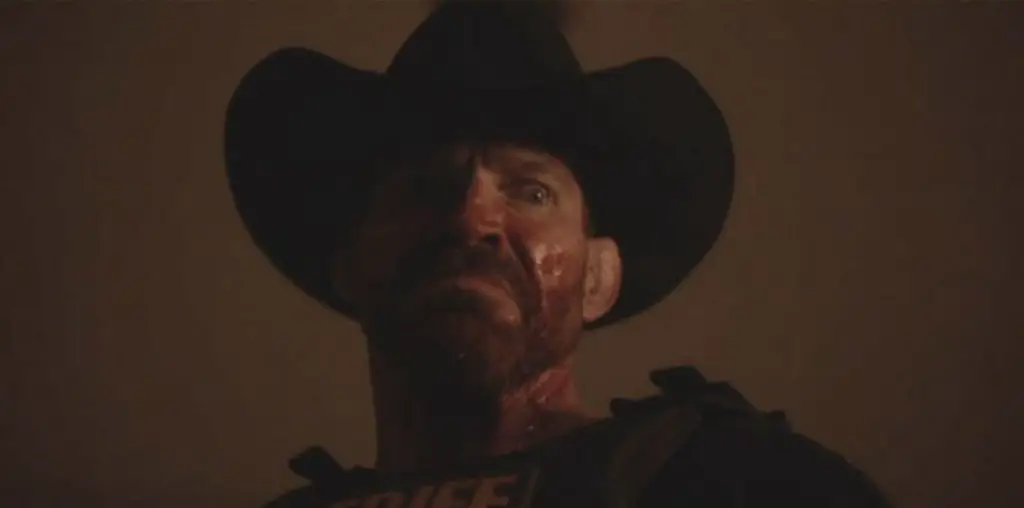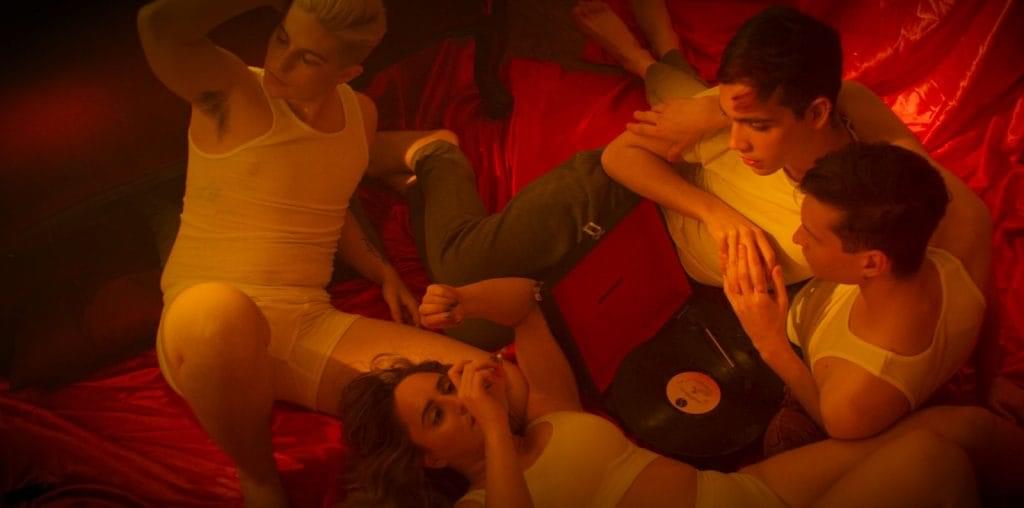
This review was originally published on March 12, 2012…
Director Ya’Ke Smith’s first feature length film, “Wolf,” unflinchingly tackles the subject of sexual abuse of a teen by his local bishop. Young Carl (Jordan Cooper) has recently become distant from his family. His mother and father have overcome some recent personal obstacles and are now on their way to a sense of normalcy. Nona (Monique Straw Mikala Gibson) has returned to school and her husband Jaymund (Shelton Jolivette) is constantly on the road with his career as a truck driver.
With little adult supervision, and being a part of a strong church-going family, Carl has grown up and spent a lot of time with Bishop Anderson (Eugene Lee), a man who fancies himself a father figure and keeper of his flock. Things quickly take a turn for the dark, however, and Carl has started to lock himself in his room, closing off communication from his family, and has visions of himself hunted in the woods by an unseen, growling attacker. He has documented, through his camera phone, his relationship with Bishop Anderson; videos which he revisits many times daily and that only complicate his emotional status.
While any movie with similar subject matter as “Wolf” can ofttimes be heavy handed in its morality, I found that Smith has done a fine job of showing a sense of restraint and kept his film grounded in a tight sense of reality. Never once do the characters feel over the top or appear as caricatures. Cooper especially does a great job as the lead, showing a nice depth of emotion that captures both his guilt at what happened but also the complex empathy he feels for a man who has clearly done wrong.
One also gets a sense of the balance within the religious morality in the characters of “Wolf.” They explore not only their own condemnations of cover-ups, defenses of what has happened, and their own personal sense of right and wrong, but they also do it in a way that feels genuine. It’s that depth of character that really makes “Wolf” shine, as almost everyone is fleshed out in the short 86 minute run time. Even Carl’s grandmother, played by the experienced Irma P. Hall, finds that with her strong upbringing in the church, she has to tackle some tough decisions to do what is right for her family without compromising her own beliefs. Bishop Anderson isn’t just a looming, evil figure but a multi-layered character overcome by his dark side and a sense of guilt as well.
While “Wolf” was a surprise on how it deals with its subject matter, it is slightly hindered by the nature of its story. It can really only resolve itself in a few ways, which leads it to be a bit predictable, but I find that’s a minor complaint with the overall package. “Wolf” is a well thought out, at times touching and, even more so, disturbing, look at abuse in the church system and how one family deals with it. It rises above the usual clichés and its mostly unknown cast deliver tight, complex characters.


The credit has been corrected. Thanks so much for the feedback!
Thanks so much for the great review. It’s really validating as an artist when critics not only like your work, but when they see what you saw and even give new insight.
One typo you have and I wanted you to please change it. Nona was played by Mikala Gibson not Monique Straw.
Thanks again for the review and the team and I are glad you dug the film!